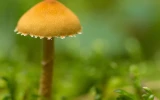The 7 Most Profitable Mushrooms to Grow in India
Mushroom farming is one of the most profitable types of farming that can be started with little investment and little space. In India, mushroom farming is gradually becoming an alternative source of income. If you want to begin mushroom farming and maximize your profits, here are seven of the most profitable mushrooms to grow in India.
The most profitable mushrooms to grow in India are oyster mushrooms, shiitake mushrooms, pioppino mushrooms, wine cap mushrooms, lion’s mane mushrooms, button mushrooms, and paddy straw mushrooms. These mushrooms are profitable because they are easy to cultivate, are fast-growing, and have high market demand.
By growing these mushrooms, you can maximize profits on your farm in India. Keep reading to learn what characteristics make these mushrooms profitable.
Summary
- In India, you can earn good profits by cultivating these mushrooms: oyster mushrooms, shiitake mushrooms, pioppino mushrooms, wine cap mushrooms, lion’s mane mushrooms, button mushrooms, and paddy straw mushrooms.
- Button mushrooms are the most profitable of all these mushrooms, comprising 85 percent of the total mushroom production in India.
- The profitability of mushrooms is attributed to their ease of growth, fast-growing ability, low production cost, wide array of substrates, culinary and medicinal purposes, and excellent yields.
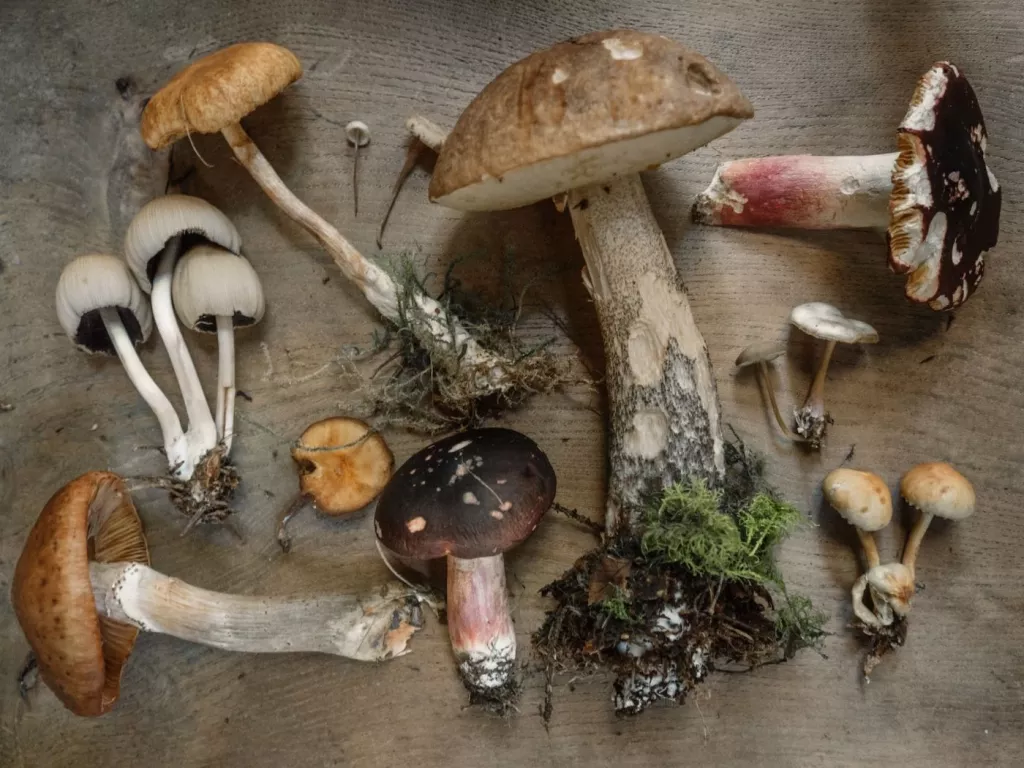
Grow These Most Profitable Mushrooms on Your Farm in India
Mushroom farming is India’s most lucrative industry today. Its increasing popularity as a secondary source of income is attributed to its quick investment returns, which turn hard labor into profit in no time.
The seven most profitable mushrooms have the most desirable characteristics, and these are the following:
1. Button Mushrooms are the most popular and profitable mushroom variety
The white button mushroom (Agaricus bisporus), is the most popular mushroom species and the most widely cultivated around the world. It contributes to 31 percent of the world’s mushroom production, and 85% of total mushroom production in India.
These mushrooms are highly profitable for their use in culinary applications. They are either sold fresh or canned and made into soups, sauces, and other food products. They also have high value in the field of medicine because they contain a high amount of retene, which is thought to have an antagonistic effect against tumors.
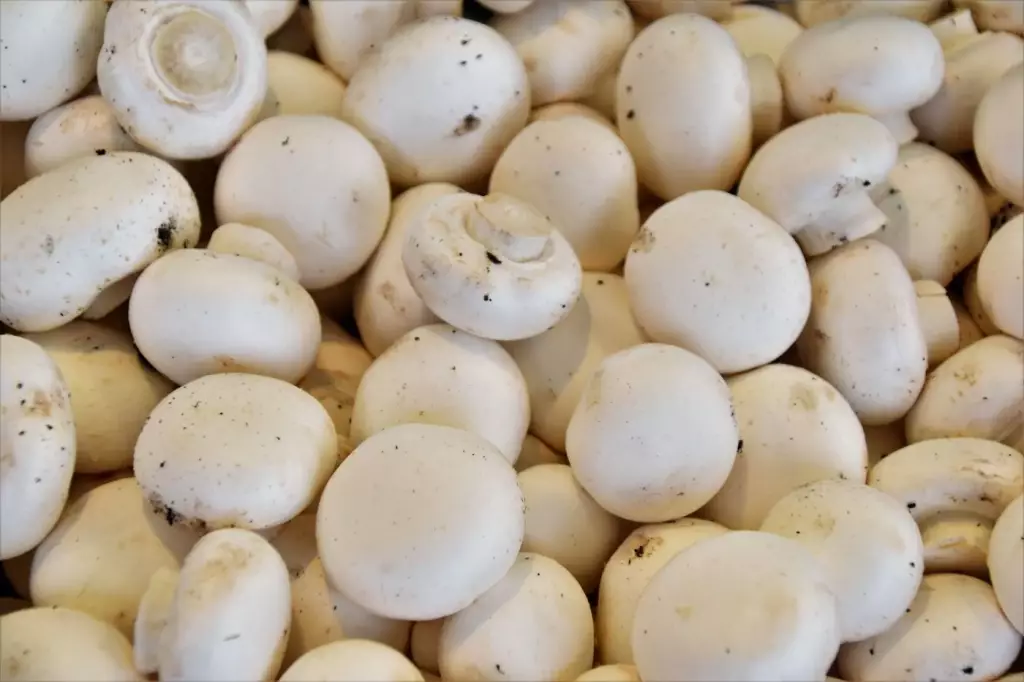
Button mushrooms are also highly profitable because, once they fruit, they can be harvested every 2 weeks for 5 months continuously.
2. Oyster mushrooms are the easiest and most profitable mushrooms to grow
Most mushrooms are grown as gourmet mushrooms, and oyster mushrooms are one of the most profitable gourmet mushrooms available on the market. They have high demand, not just because of their taste, but also because they have good health benefits.
They have low fat content and are recommended for patients with obesity, diabetes, and high blood pressure. Aside from this, oyster mushrooms can be grown easily. They can be harvested in about 3–4 weeks. 500 square feet of land can produce 12,000 pounds of oyster mushrooms in a year.
On top of these, oyster mushrooms can be cultivated on several varieties of substrates, such as straw, wheat, millet, cotton, used citronella leaves, sawdust, cotton waste, coffee byproducts, and tobacco waste. They are not picky with their substrate, which makes them more profitable.
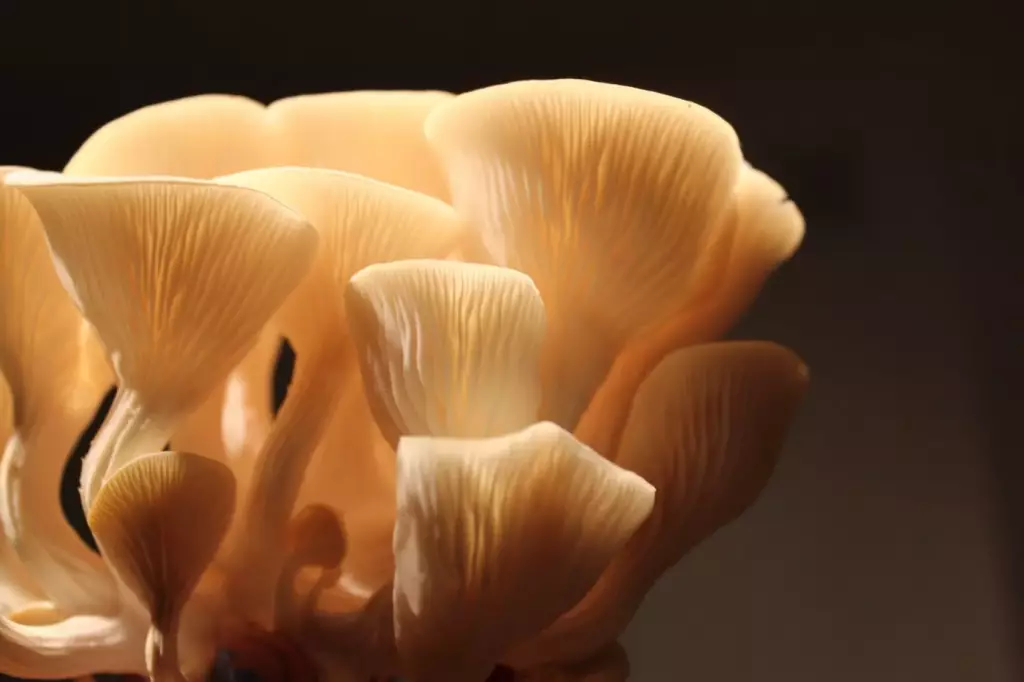
3. Shiitake mushrooms are profitable for their taste and long shelf life
Shiitake mushrooms are the most recognized and popular gourmet mushrooms worldwide. They are highly valued for their meaty taste, low cholesterol content, and immunity-boosting characteristics.
They also have an excellent shelf life; fresh harvests can last 2–3 weeks if refrigerated. Dried varieties can last for 2–3 years in a sealed container and are hugely popular in the market.
Log-grown shiitake mushrooms produce higher quality mushrooms and therefore have more product value than shiitakes grown on an artificial substrate. Although shiitakes take a long time to develop and can be picky with their substrate, they can give a continuous yield for about 6–8 years.
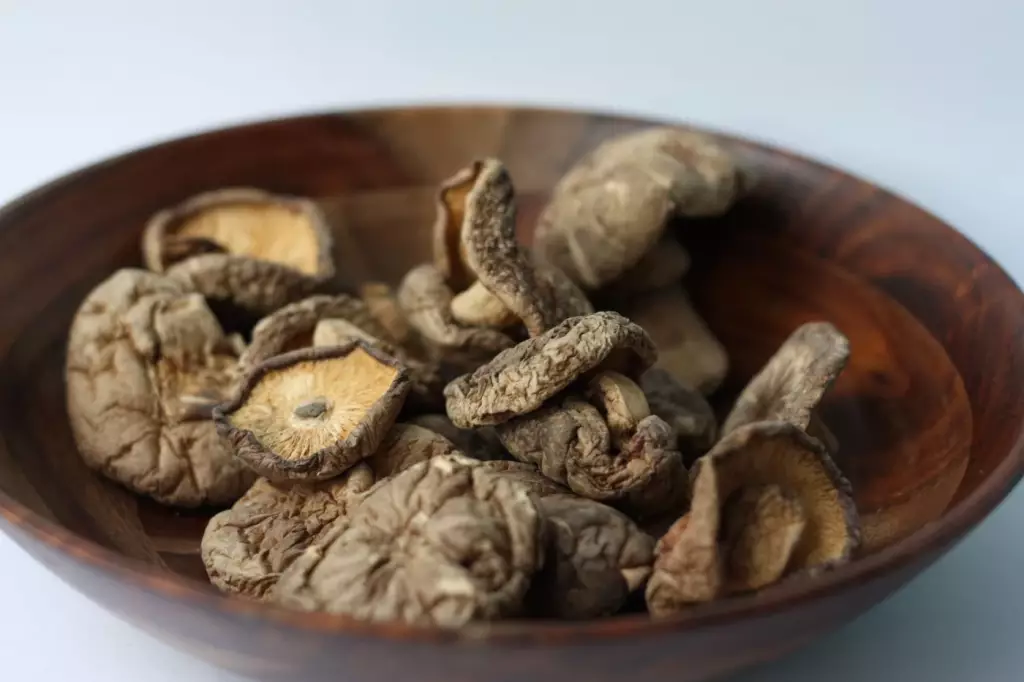
4. Wine cap mushrooms are profitable and beneficial to soil health
Wine cap mushrooms (Stropharia rugosoannulata) are large, meaty mushrooms with red wine-colored caps and a nutty or subtle potato taste.
Wine cap mushrooms are some of the easiest edible mushrooms to adapt, and they can be grown in outdoor beds such as garden beds. Studies have shown that cultivating wine cap mushrooms in your garden benefits the soil as they increase the organic material and phosphorus content of the soil, as well as its bacterial composition and diversity.
But aside from their taste and adaptability, wine cap mushrooms are profitable because they can be grown easily at home and produce harvests for years. You can use wood chips or straw as mulch, and they can easily break this organic matter and release nutrients into the soil.
If you continually replenish the beds with new mulch every 1–2 years, you can expect a good and continuous harvest of wine cap mushrooms for years.
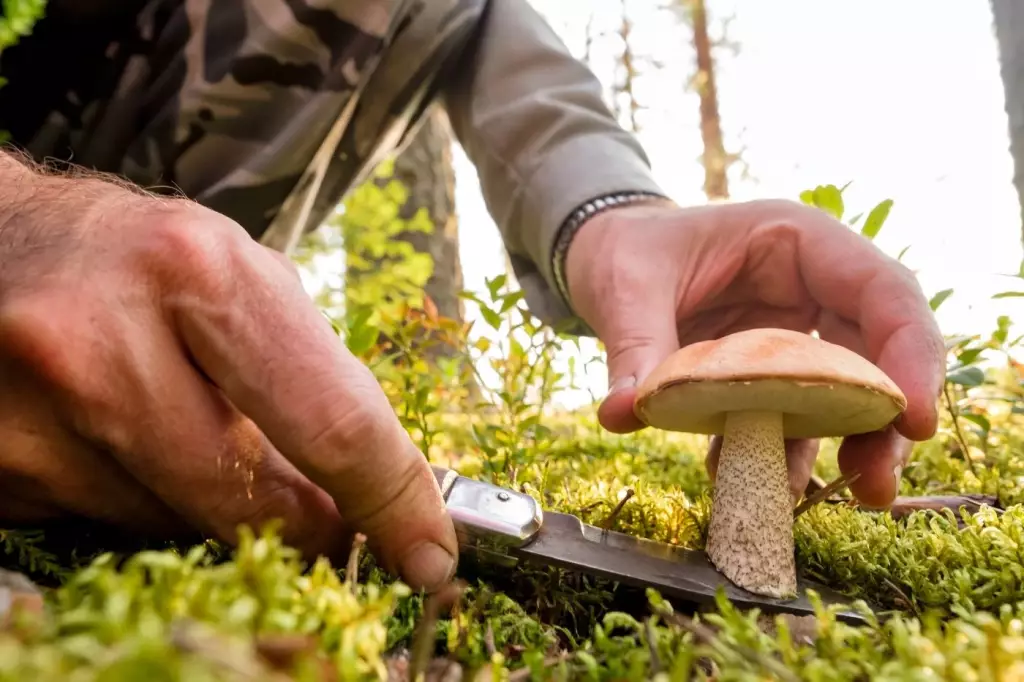
5. Lion’s mane mushrooms are highly valued for their health benefits
Lion’s mane mushrooms are unique-looking mushrooms having a large, white, pom-pom-like appearance. They have teeth or needle-like gills that cascade downwards which got them their name.
They have a soft, spongy texture, and a mild, slightly sweet taste like crab or lobster. However, lion’s mane mushrooms are not only edible, but they also have medicinal purposes and many health benefits.
Research has shown that lion’s mane mushrooms can improve cognitive abilities and protect against dementia, reduce mild symptoms of anxiety and depression, and can even help repair nerve damage. They also have anti-inflammatory and immunity-boosting properties.
Lion’s mane mushrooms are easy to grow, but having advanced knowledge will make things easier for you. It may also take one or two years to harvest these mushrooms. But although not quickly growing, once they start producing, they can continually produce fruits from the same log for 6 years.
6. Pioppino mushrooms are easy to grow and profitable
Pioppino mushrooms (Agrocybe aegerita) are delicious edible mushrooms growing in large clusters on decaying hardwood trees such as poplars. They have been cultivated for years for medicinal purposes because of their antioxidant properties that can fight cancer-causing agents.
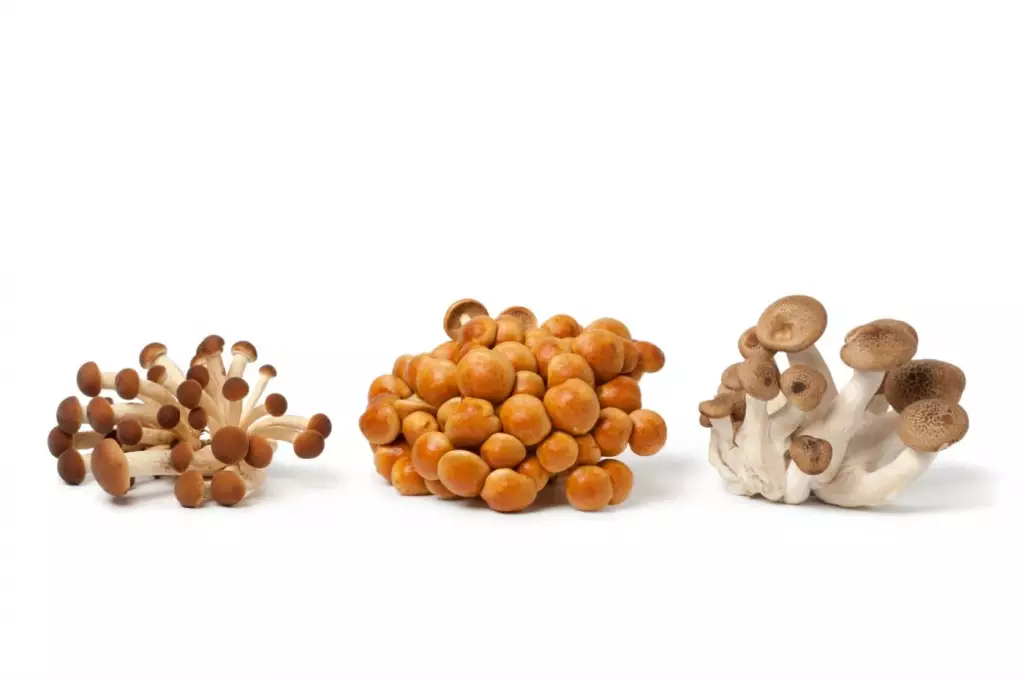
In terms of culinary, if you like umami-tasting mushrooms, pioppino may be the one you’re looking for as they have an earthy, nutty flavor that’s slightly sweet and peppery. Aside from their taste, pioppino mushrooms are relatively easy to grow indoors, but they require more attention and monitoring than oyster mushrooms.
They can be grown in bags, jars, monotubs, with straw or sawdust as substrate. Ensuring a high humidity level during the pinning stage is the most critical part of growing them. Pioppino mushrooms are fast growers, since at 6–10 days after the pinning stage, they can be harvested already.
7. Paddy straw mushrooms are easy to grow and cultivate which makes them profitable
The rice-straw mushroom (Volvariella volvacea) or paddy straw mushroom is one of the easiest mushroom varieties to grow in India. They have an excellent flavor and rich taste and are filled with essential amino acids.
They can be cultivated both indoors and outdoors and can be used as an intercrop in most plantations. They can be grown for little cost and are expected to have great returns in 3–4 weeks if grown under favorable conditions.
The profitability of these mushrooms is therefore attributed to their taste as well as their fast-growing nature.



